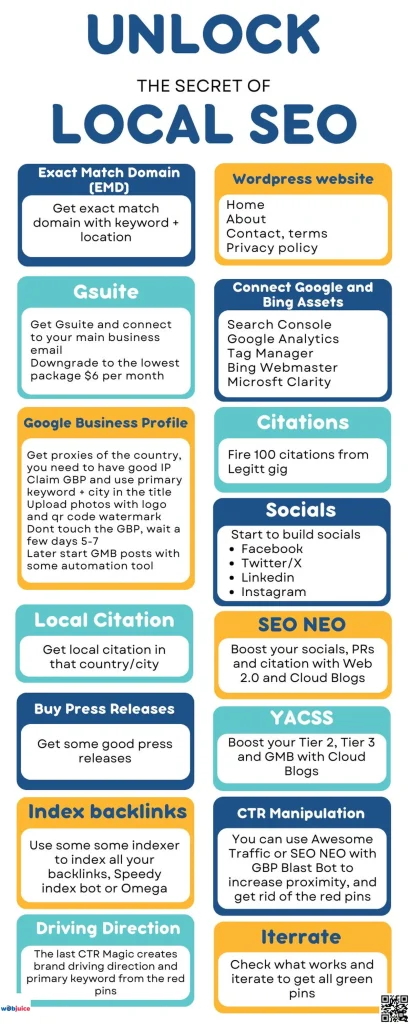In an increasingly competitive and localized digital landscape, simply being online is no longer enough for businesses to thrive. To truly connect with customers and drive meaningful growth, a precise and strategic approach is required. This is where the power of geo-targeted keywords and local SEO becomes indispensable. By moving beyond generic search terms and embracing location-specific phrases, businesses can unlock a direct pathway to their community, dramatically improving visibility among the audience that matters most.
This comprehensive guide delves into the essential strategies for mastering local search dominance. We begin by exploring the fundamental concept of geo-targeted keywords—terms that include city names, neighborhoods, or regional markers—and explain how they serve as a critical bridge to local searchers actively seeking your products or services. You will learn how to conduct effective local keyword research using powerful tools and community insights to uncover high-intent search phrases unique to your area.
The guide then provides a actionable roadmap for implementation, detailing how to optimize your website with location-specific pages, enhance your Google Business Profile for maximum impact, and build local authority through citations and community engagement. Furthermore, we emphasize the importance of a data-driven approach, outlining key performance indicators—from local search rankings and website traffic analytics to customer review sentiment—that allow you to measure, refine, and prove the ROI of your geo-targeting efforts. Embrace these proven tactics to build a formidable local presence, foster trust within your community, and ensure your business is the top choice when potential customers search nearby.
Key Takeaways
- Geo-targeted keywords help businesses connect with local customers better. You can do this by adding city names or neighbourhood terms to your keywords. This makes your content more relevant to local people.
- The Google Keyword Planner is a good tool to check search volumes and find local keyword ideas.
- By making special pages for different locations on your website, you can improve your local SEO visibility.
- Make sure your Google My Business listing has correct information to increase your local search presence.
- Getting customer reviews and creating local content builds trust in the community. These methods help businesses focus on certain areas and boost their local search results.
Understanding Geo-Targeted Keywords
By using city names, regions, or neighbourhood tags in content, messages can meet the needs of local communities.
Geo-targeted keywords help brands connect with people in a specific geographic area.
This method makes content more relevant and boosts search engine rankings.
Local citations and backlinks can help a business’s online presence and local search visibility.
This can make a geo-targeted keyword strategy even more effective.
Using geo-targeted keywords helps customers looking for products or services in their area.
This type of traffic is more likely to turn into sales, as these users usually want to buy.
Researching Local Keyword Opportunities
Start by using tools such as Google Keyword Planner, Ubersuggest, or Ahrefs.
These tools help you find search volumes and trends.
They show you the specific words and phrases your audience uses.
Focus on phrases that contain your area.
Local forums and social media sites are very valuable.
Join community discussions to find out the language and needs of your audience.
You might find phrases or questions that are special to your local market.
Remember to check what your competitors are doing.
Look at the keywords they use and find areas where they are lacking.
This shows chances to benefit from less common but important phrases.
When you research, look closely at the details.
Optimizing Website Content for Locations
Geo-targeted keywords are important for getting local customers.
Use them well on your website.
You can improve website content by using targeted keywords, making local content, and enhancing images.
These keywords should show the areas you cover, like city names, neighbourhoods, or local landmarks.
Place them in headings, meta descriptions, and body text to increase relevance.
Think about making location pages for each area you serve.
These pages can help local SEO in Dublin and inform customers in certain regions.
Next, make content that talks about what your local audience needs.
Write about local events, guides for the area, or stories about local clients.
Don’t forget about image optimization.
Use clear file names and alt text with keywords related to the location.
This helps with SEO and makes your website easier to use.
Implementing Local SEO Strategies
Begin by claiming and improving your Google Business Profile.
This helps your business show up in local search results, making it easier for people to find you.
Include correct information like your address, phone number, and business hours.
To make your profile better, add good photos and improve your description to show what makes you special and draw in more customers.
Use geo-targeted keywords in your website content.
These keywords should match your services and the areas you work in.
Get happy customers to leave good reviews online.
Quality reviews help build your trust and boost local search visibility.
Create content for your area, like blog posts or landing pages, that talks to your community.
This custom approach builds a good connection and grows trust.
Measuring Success With Geo-Targeting
Google Analytics can help you see where users come from and how they interact with your site.
Start by monitoring your website traffic.
Pay attention to visitors from certain locations.
Local reviews give useful information about how people see a business in certain places.
This helps to improve the geo-targeting strategy.
Check local search rankings.
Watching where you stand in local search results shows how geo-targeted keywords work.
Engagement metrics such as click-through rates and conversion rates are important.
A higher click-through rate shows that the content connects well with local audiences.
High conversion rates show a good ability to meet needs.
Think about customer feedback and reviews from certain places.
They give useful information about how people feel about the geo-targeting strategy.
Geo-Targeted Keywords & Local SEO FAQs
Get detailed answers to the most frequently asked questions about improving local search visibility through geo-targeted keywords and strategic local SEO implementation.
What are geo-targeted keywords and why are they critical for my business?
Geo-targeted keywords are search phrases that include specific geographic modifiers such as city names, neighborhoods, regions, or local landmarks (e.g., “emergency plumber in Austin”, “wedding photographer Brooklyn Heights”).
These keywords are critical because they connect your business with high-intent customers actively searching for products or services in your immediate service area. This precise targeting significantly improves your local search engine visibility and drives qualified traffic with higher conversion potential.
By incorporating location signals into your content, you:
- Answer the “where” element for search engines, outperforming generic competitors
- Directly connect with your community, building relevance and trust
- Capture traffic from “near me” searches and localized queries
- Improve conversion rates by reaching customers ready to make local purchases
SEO Tip:
Integrate geo-targeted keywords naturally into title tags, meta descriptions, headers, and body content. Ensure your primary service area appears in prominent locations on key pages.
How do I find the best geo-targeted keywords for my local market?
Discovering optimal local keywords requires a strategic combination of digital tools and community insights:
1. Tool-Based Research:
- Google Keyword Planner: Identify search volume for location-modified terms
- Google Trends: Analyze seasonality and regional interest patterns
- Local SEO Tools (Moz Local, BrightLocal): Conduct competitive analysis and identify gaps
2. Community Intelligence:
- Monitor local Facebook groups, Nextdoor, and neighborhood forums
- Analyze “People also ask” sections in local search results
- Review competitor websites serving your target areas
- Note the specific language and questions used by local customers
This dual approach helps you uncover not just high-volume keywords, but also valuable long-tail phrases and question-based queries (e.g., “where to buy organic vegetables downtown”) that reveal strong commercial intent and niche opportunities.
What are the most important on-site SEO factors for local search?
While keywords initiate local relevance, comprehensive on-site optimization solidifies your search visibility. Key technical and content factors include:
Technical Implementation:
- Location-Specific Landing Pages: Create dedicated, high-quality service area pages (e.g.,
/plumbing-services/houston-tx/) with unique, valuable content for each locale - Structured Data (Schema Markup): Implement
LocalBusinessschema to help search engines understand your NAP (Name, Address, Phone), hours, services, and customer reviews - Optimized Title Tags & Meta Descriptions: Include primary geo-targeted keywords naturally to improve click-through rates
Content Strategy:
- Localized Content Integration: Reference local landmarks, events, news, or testimonials from area clients in blog posts and service pages
- NAP Consistency: Ensure your business name, address, and phone number appear identically across all website pages
- Image Optimization: Use descriptive file names and alt text with local keywords for images
SEO Tip:
Regularly audit your website for NAP consistency and update location pages with fresh, relevant content to maintain search engine favor and user engagement.
How vital is my Google Business Profile for local SEO success?
Your Google Business Profile (GBP) is arguably the single most critical asset for local SEO dominance. It serves as the primary data source for Google’s local search results, Maps, and Knowledge Panel.
A fully optimized, accurate, and actively managed GBP is non-negotiable for appearing in the coveted “Local Pack” (the map results with three business listings) and building instant credibility with potential customers.
Essential GBP Optimization Steps:
- NAP Consistency: Ensure your Name, Address, and Phone number match exactly across all online directories
- Precise Categorization: Select the most specific, relevant primary and secondary business categories
- Visual Content: Upload high-quality photos regularly (exterior, interior, team, products/services)
- Active Management: Post updates about offers, events, or news using the GBP Posts feature
- Review Strategy: Actively solicit and professionally respond to customer reviews
- Complete Attributes: Fill out all relevant attributes (women-owned, wheelchair accessible, payment methods, etc.)
GBP directly influences local rankings and provides measurable insights through its dashboard, tracking profile views, website clicks, direction requests, and phone calls.
How can I measure the success and ROI of my geo-targeting efforts?
Quantifying the return on your local SEO investment requires tracking specific key performance indicators (KPIs) across multiple platforms:
Primary Measurement Tools & Metrics:
Google Analytics 4:
- Local Traffic: Monitor organic sessions from target cities/regions
- Conversions: Track goal completions (contact forms, calls, quote requests) from local users
- User Behavior: Analyze engagement metrics (bounce rate, session duration, pages/session) for local visitors
Google Business Profile Insights:
- Discovery Metrics: Profile views, search queries showing your profile
- Action Metrics: Website clicks, direction requests, phone calls
Additional Critical Metrics:
- Local Search Rankings: Track positions for key geo-targeted phrases using rank tracking tools
- Customer Reviews & Sentiment: Monitor volume, star ratings, and sentiment analysis
- Local Citation Audit Scores: Measure NAP consistency across online directories
- Competitor Comparison: Benchmark performance against local competitors
By correlating improvements in these metrics with increases in local customer acquisition, phone calls, and in-store visits, you can clearly demonstrate the tangible ROI of your geo-targeting strategy and make data-driven decisions for optimization.
Summary
Hyper-Relevance Drives Results: Integrating geo-targeted keywords (e.g., “best coffee shop in [Neighborhood]”) is non-negotiable for attracting high-intent local traffic and improving search engine rankings.
Research Forms the Foundation: Utilize tools like Google Keyword Planner and local community forums to discover the exact phrases and topics your local audience is searching for.
On-Page Optimization is Critical: Dedicate specific website pages to each service area, ensuring content, titles, meta descriptions, and image tags are optimized for local relevance.
Your Google Business Profile is Your Digital Storefront: A fully optimized, accurate, and review-rich profile is paramount for visibility in Local Pack results and Google Maps.
Authority Builds Trust: Earn positive customer reviews, create locally-focused content, and engage in community conversations to establish credibility and dominate local search.
By systematically implementing these geo-targeted strategies—from initial keyword research to continuous performance analysis—businesses can construct an unshakeable local SEO foundation. This focused approach not only elevates your visibility in critical “near me” searches but also fosters deeper connections with your community, transforming local searches into loyal customers and driving sustainable business growth. Start refining your local SEO strategy today to claim your position as the leading authority in your market.










